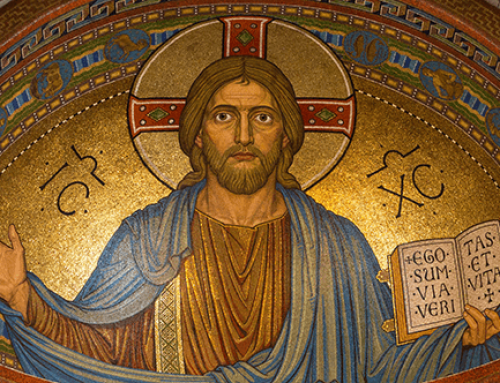 If you have heard the story of the prophet, Jonah, you will probably immediately think of how he was swallowed by a whale. The story goes that God sent Jonah to the great city of Nineveh to warn the people that He would send destruction upon them because of their wickedness. But instead of doing what God had commanded, Jonah ran away. He boarded a ship headed in the opposite direction.
If you have heard the story of the prophet, Jonah, you will probably immediately think of how he was swallowed by a whale. The story goes that God sent Jonah to the great city of Nineveh to warn the people that He would send destruction upon them because of their wickedness. But instead of doing what God had commanded, Jonah ran away. He boarded a ship headed in the opposite direction.
God sent a great storm after the ship, threatening the lives of all on board. Knowing his disobedience was the source of their peril, Jonah convinced the people to cast him overboard. When they did so, the storm was immediately calmed, and a big fish–usually portrayed as a whale–came and swallowed Jonah whole.
After three days and nights in the belly of the fish, Jonah repented of his disobedience and prayed to the Lord. And so, God commanded the fish to release Jonah, and the fish vomited him up onto dry land.
Do you know what happened next? Jonah went to Nineveh and preached the message God had commanded him to preach, namely, that after forty days, God would destroy them because of their wickedness. But the destruction never came. And the reason that it never came reveals something wonderful about the nature of God.
Here is what is written in the account of Jonah:
Then the people of Nineveh believed in God; and they called a fast and put on sackcloth from the greatest to the least of them… When God saw their deeds, that they turned from their wicked way, then God relented concerning the calamity which He had declared He would bring upon them. And He did not do it. (Jonah 3:5, 10)
One of the truths that the Bible reveals to us about the nature of God is that He is immutable, which means, He never changes: He is the same yesterday, today, and forever (Heb. 13:8); His Word stands forever (Isa. 40:8); His commands always accomplish His desires (Isa. 55:11); He can do all things and His purpose cannot be thwarted (Job 42:2).
But doesn’t that contradict what we just heard from Jonah? Doesn’t the story of Jonah tell us that God changed His mind? Doesn’t it tell us that God said He was going to do something, but in the end, He didn’t do it?
The story of Jonah does, indeed, tell us these things. And it also explains the seeming contradiction.
After God relented concerning the destruction of Nineveh, Jonah complained to God, saying,
“Didn’t I say before I left home that you would do this, LORD? That is why I ran away to Tarshish! I knew that you are a merciful and compassionate God, slow to get angry and filled with unfailing love. You are eager to turn back from destroying people.” (Jonah 4:2 NLT)
Jonah complained because his foolish pride was bruised when the destruction he had been sent to proclaim didn’t materialize, but his understanding of the nature of God was true.
God’s nature–His character–never changes. Neither do the purposes and intentions of His heart. His actions are always rooted in His character, but are often prompted by the actions of others.
In the case of Nineveh, God, who is holy and righteous, responded to the wickedness of the people by preparing to send a well-deserved calamity upon them. But being also merciful and compassionate in nature, God sent Jonah to warn Nineveh of its peril.
The people of Nineveh responded to God’s warning with humility and repentance. And so God responded to their actions, in turn, by relenting of the destruction He had planned.
God changed His mind, but He did not change His nature. He changed His mind concerning the impending calamity, but He did not change His stance against sin. On the contrary, it was the people of Nineveh who changed their attitude toward sin. Indeed, such an outcome was likely the desire of God’s heart. After all, why send the prophet Jonah to warn the people of impending calamity if not to give them opportunity to repent and so avert disaster?
The God of the Bible is a God who never changes, who always acts in accordance with His character, and who always accomplishes His purpose. When He acts, He does not act from a position of isolation, but He takes the actions–and the welfare–of others into consideration.
So, when you think of the story of Jonah, remember the story is about more than a man who was swallowed by a big fish. Remember that it is the story of a God who is slow to get angry, yet ready to confront injustice and sin, and who is always quick to respond to a contrite heart with mercy and compassion.
Pastor Cindy





I always wondered about this story, and how God changed His mind. It went against what I learn about God. But, your explanation really helped me understand the story of Jonah, and more importantly, it helped me understand the character of God more.
We can always learn more from Jonah. Obedience. Repentance. Mercy.